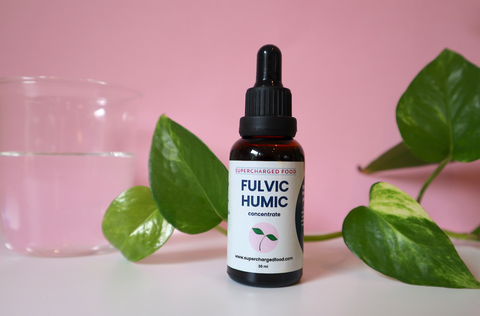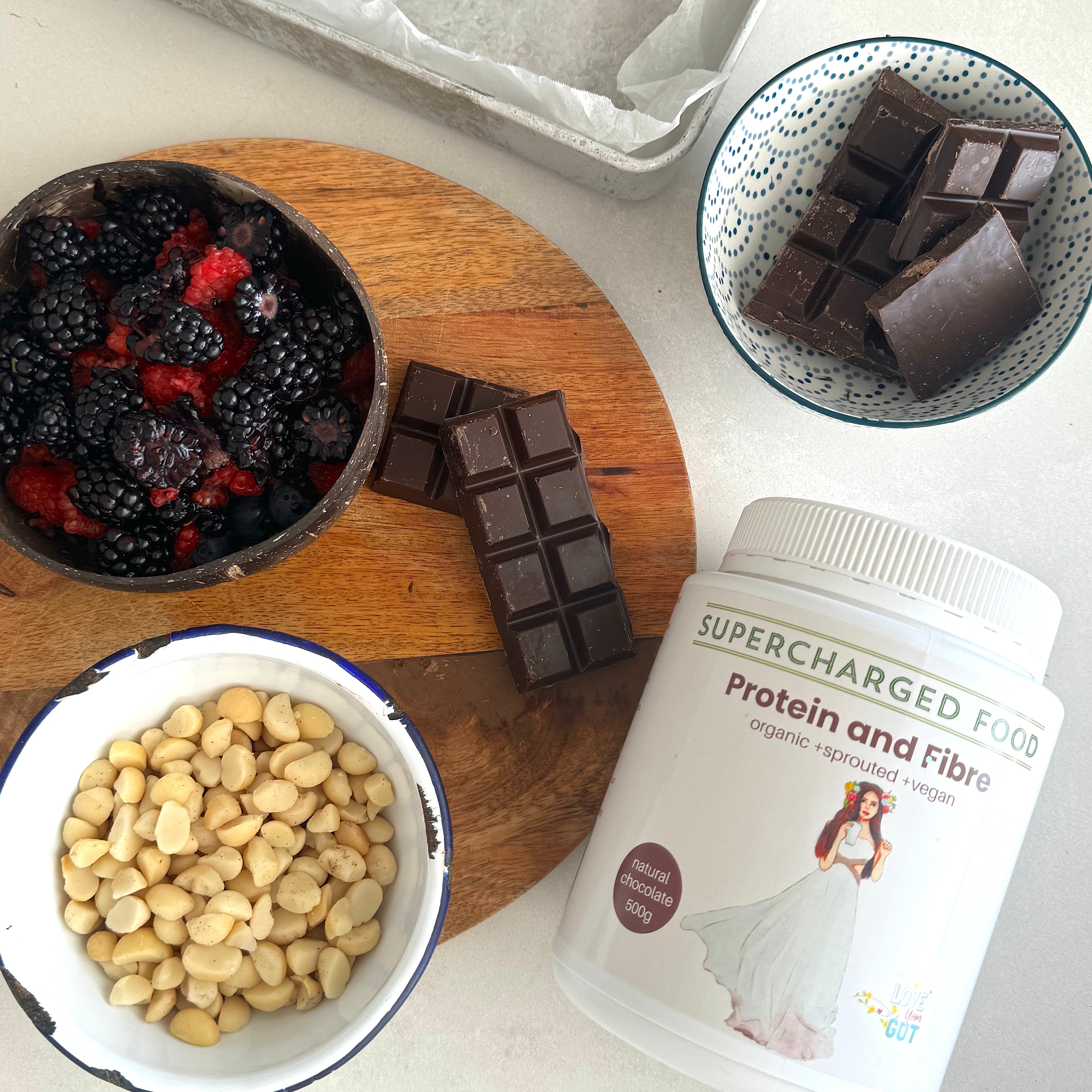Welcome to Part 3 of our Supercharge Your Gut Health Series. Today we’re talking all things Crohn’s disease.
Let’s dive in, shall we?
If you’ve been diagnosed with Crohn’s disease, I’m sure you can relate to at least some of the following:
- You’re as talented at finding the closest bathroom as your dog is at finding where you hide their treats.
- Public bathrooms are your worst nightmare.
- Having a ‘regular poo’ makes your day.
- You always book the aisle seat – just in case.
- You roll your eyes when someone tells you that a particular food is healthy because you know that it’ll send you straight to pain-town (Population: 1 – You).
Sound familiar? I thought so.
What is Crohn’s Disease?
Crohn’s is one of the two main types of inflammatory bowel diseases (IBD). The other type of IBD is Ulcerative Colitis. While both Crohn’s and Ulcerative Colitis involve an immune reaction against the intestinal tract, Ulcerative Colitis is inflammation localised to the large bowel. Crohn’s disease is inflammation that can appear in any part of the digestive tract – from the mouth to the anus.1 Yes, it’s as un-fun as it sounds.
Crohn’s disease follows a pattern of remissions and exacerbations, and the severity can range from mild to severe. Crohn’s disease is chronic and can be incredibly debilitating.
Symptoms of Crohn’s:
- Abdominal distention
- Abdominal pain
- Anaemia
- Constipation
- Diarrhoea
- Fatigue
- Fever
- Generalised joint pain
- Loss of appetite
- Nausea
- Perianal fissures (small tears in the lining of the anus)
- Rectal bleeding
- Vomiting
- Weight loss
Crohn’s can also cause symptoms in the musculoskeletal, liver and genitourinary system.2
Why Do People Get Crohn’s?
The cause of Crohn’s is complex and, honestly, not fully understood. Previously, diet and stress were suspected causes, but new research indicates these factors may aggravate Crohn’s, not cause it.
Several factors, such as genetics, environmental factors and ineffective immune system responses, are more likely to play a role in the development of Crohn’s.
How is Crohn’s diagnosed?
There are several tests undertaken that diagnose Crohn’s disease. These range from blood tests, stool analysis, x-rays, colonoscopy’s, gastroscopy and sometimes MRI’s and ultrasounds. While Crohn’s disease isn’t limited to a certain age, it’s usually diagnosed in adolescence and young adults.1
How to Help Manage Crohn’s
1. Avoid Foods that Trigger Your Symptoms
While there’s no specific diet that can improve or treat Crohn’s disease, some patients can identify particular foods which trigger their symptoms and cause disease flare-ups. By avoiding trigger foods, you may find that your Crohn’s related symptoms are more manageable. Plus, removing these foods will give your inflamed intestines time to heal.
2. Ensure Adequate Protein Intake
We know that reducing your intake of potential trigger foods can help relieve symptoms, and meat is commonly removed as it can be hard to digest. Unfortunately, this, in addition to a reduced ability to absorb nutrients, means people with Crohn’s can have a protein insufficiency. Protein is necessary for the adequate production of stomach acid, neurotransmitters and digestive enzymes. So, it’s vital to ensure you’re still eating enough protein. I recommend opting for lean sources of protein as these are easier to digest, such as fish, lean cuts of meat, soy, eggs and firm tofu. You may find that including a protein powder with minimal additives is an easy way to ensure you’re consuming an adequate amount of protein.
3. Inflammatory-Fighting Foods
Omega-3 Fatty Acids, found in fatty fish such as salmon and herring, hemp seeds, flaxseeds and flax oil, chia seeds and walnuts, can help reduce the inflammation associated with Crohn’s disease.3 Fulvic Humic Acid is my go-to anti-inflammatory food; research indicates that fulvic acid can reduce the release of proinflammatory mediators from cells, decreasing overall inflammation. Find out more about Fulvic Humic Acid here.

4. What’s the Story with Fibre?
Various studies have found that patients with IBD have low levels of short-chain fatty acids, found in fibre-rich fruit and vegetables, which help decrease inflammation and regenerate tissue in the colon.4 I recommend eating various vegetables to increase your intake of fibre, digestive enzymes and nutrients. When it comes to Crohn’s, eat softly cooked, not raw, vegetables, as these are easier to digest. Unfortunately, as with everything Crohn’s-related, it’s not black and white. If you have an extensive disease history, you may find it more beneficial to have a diet lower in fibre.
5. What Nutrient Deficiencies Do You Need to Watch Out For?
Due to high levels of inflammation, people with Crohn’s are likely to have a reduced capacity to absorb essential nutrients, which can exacerbate their health concerns.
Nutrient deficiencies are common and include:
- Iron: Approximately 60–80% of patients with Crohn’s disease suffer from iron-deficiency anaemia.5 This is because iron is primarily absorbed in the terminal ileum, a common area for active Crohn’s disease.
- Vitamin B12: Vitamin B12 is also primarily absorbed in the terminal ileum. It's estimated that just under half of people with Crohn's have a deficiency in vitamin B12.5
- Zinc: Zinc is required for healthy immune and digestive function, as well as adequate wound healing. Around 15.2% of people with IBD have low serum zinc.6 A zinc deficiency can predispose someone with Crohn's to further injury of the gastrointestinal mucosa.7
- Vitamin D: Approximately 75% of people with Crohn’s have a vitamin D deficiency.5 Vitamin D plays a vital role in the formation of bones, as well as the strength of the immune system.8
- Calcium: Calcium deficiency, seen in 13% of patients with Crohn’s disease, is associated with improper functioning of neuromuscular and cardiovascular function, as well as poor bone density.5
- Magnesium: A magnesium deficiency is seen in around 14-32% of patients with Crohn's disease, likely due to the chronic diarrhoea and bowel resections associated with Crohn's.5 A deficiency of magnesium in Crohn’s can cause muscle cramps, fatigue, impaired healing, bone pain and mental health conditions.9
These nutrient deficiencies can lead to fatigue, muscle aches, further digestive problems, anaemia, osteoporosis, anxiety and depression. So, we must aim to address these deficiencies through diet and supplements, where necessary. But don’t worry - not all hope is lost! My Golden Gut Blend can provide your daily dose of anti-inflammatory, gut-loving goodness with a bonus of all your favourite nutrients, including iron. Find out more here.

6. Watch Your Stress
Stress is often cited as a contributing factor in Crohn’s, exacerbating the intestinal inflammation through the reactions between the gut and brain.10 Relieving psychological stress is of great benefit to improving the symptoms of Crohn’s. Some ways to manage stress include seeking the help of a psychologist or therapist, mindfulness meditation and regular exercise. I can’t recommend Vedic Meditation enough.
7. What Should You Do During an Acute Attack?
During an acute attack, eat a simple and easily digestible diet. Be sure to avoid foods that trigger your symptoms, and instead, opt for soft-cooked vegetables, fish and chicken. Some people may prefer to eat an elimination diet when a flare-up occurs, which involves eating essential nutrients in a pre-digested form, allowing the bowel to rest and attain remission. However, this can, unfortunately, cause diarrhoea or see a reoccurrence of symptoms once the diet returns to normal.
Please remember Crohn’s isn’t something you need to manage on your own. As always, I recommend working with your healthcare practitioner to find a solution that works for you.
There we go – Supercharge Your Gut Health Number Three! I’d love to know what you learned about Crohn’s in the comments below.
References:
1Head, K., & Jurenka, J. S. (2004). Inflammatory bowel disease. Part II: Crohn's disease--pathophysiology and conventional and alternative treatment options. Alternative medicine review: a journal of clinical therapeutic, 9(4), 360–401.
2 Feldman M, Friedman L, Brandt L. Sleisenger and Fortran’s gastrointestinal and liver disease: pathophysiology, diagnosis and management. 8th ed. Philadelphia: Saunders; 2006
3 Tzion, R., Griffiths, A. M., Ledder. O., Turner, D. (2014). Omega 3 fatty acids (fish oil) for maintenance of remission in Crohn's disease. John Wiley & Sons, Inc, 2, 1465-1858.
4 Galvez J, Rodriguez-Cabezas ME, Zarzuelo A. Effects of dietary fiber on inflammatory bowel disease. Mol Nutr Food Res 2005;49:601–8.
5 O’Sullivan M, O’Morain C. Nutrition in inflammatory bowel disease. Best Pract Res Clin Gastroenterol 2006;20:561–73
6 Vagianos K, Bector S, Mcconnell J, et al. Nutrition assessment of patients with inflammatory bowel disease. JPEN J Parenter Enteral Nutr 2007;31:311–9
7 Davidson G, Kritas S, Butler R. Stressed mucosa. Nestle Nutr Workshop Ser Pediatr Program 2007;59:133–42; [discussion 143–146].
8 Feldman D, Malloy PJ, Krishnan AV, et al. Vitamin D: Biology, Action, and Clinical Implications. Osteoporosis. 3rd ed. San Diego: Academic Press; 2008
9 Galland L. Magnesium and inflammatory bowel disease. Magnesium 1988;7:78–83
10Sun, Y., Li, L., Xie, R., Wang, B., Jiang, K., & Cao, H. (2019). Stress Triggers Flare of Inflammatory Bowel Disease in Children and Adults. Frontiers in pediatrics, 7, 432. https://doi.org/10.3389/fped.2019.00432
11Yamada P., Isoda H., Han J. K., Talorete T. P. N., Yamaguchi T., Abe Y. Inhibitory effect of fulvic acid extracted from Canadian sphagnum peat on chemical mediator release by RBL-2H3 and KU812 cells. Bioscience, Biotechnology, and Biochemistry. 2007;71(5):1294–1305. doi: 10.1271/bbb.60702.







Leave a comment